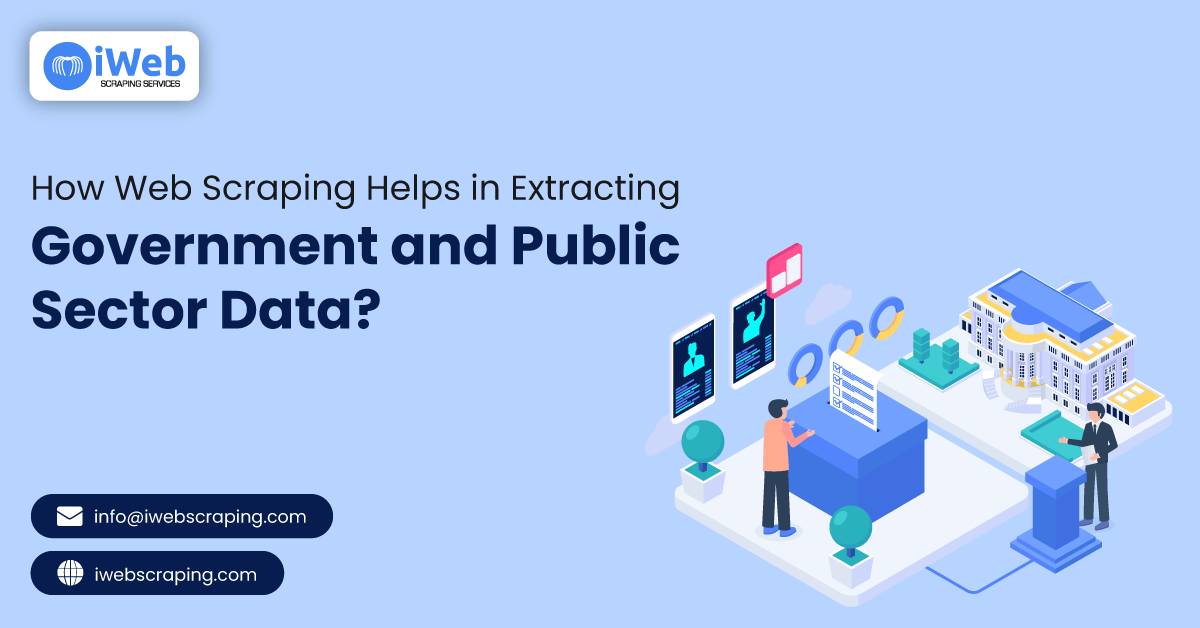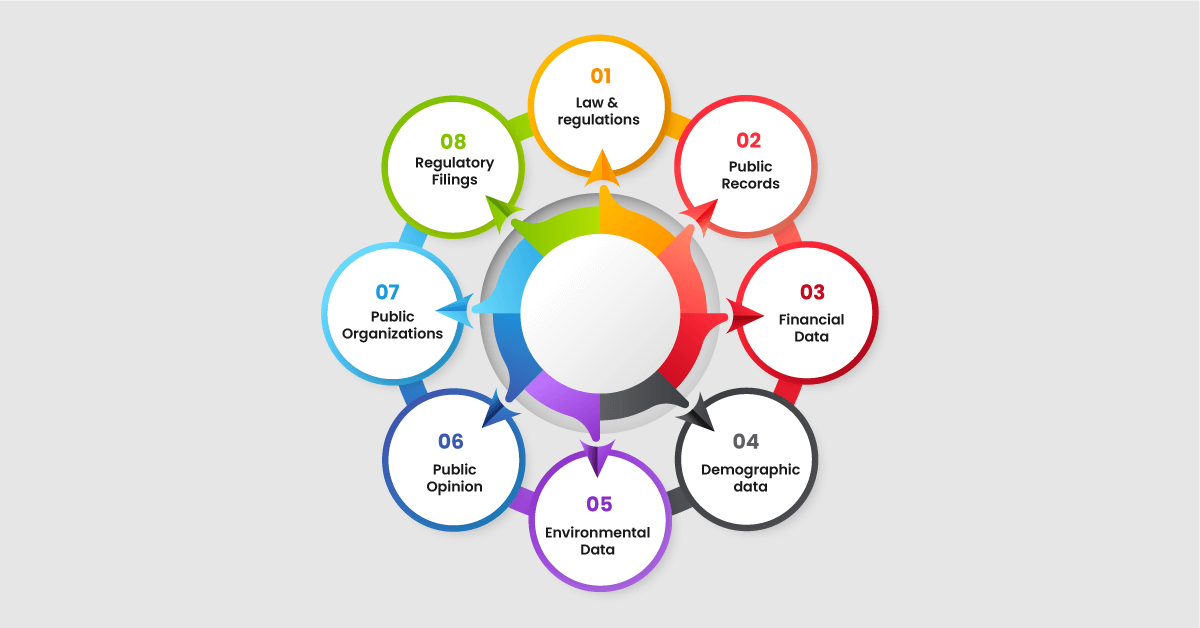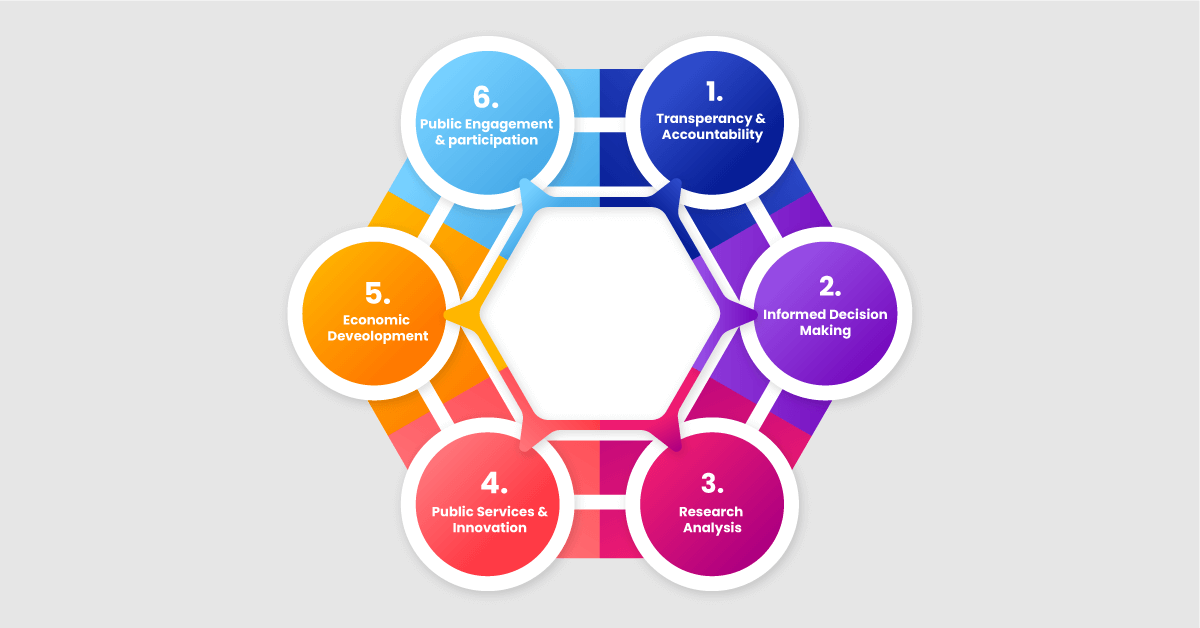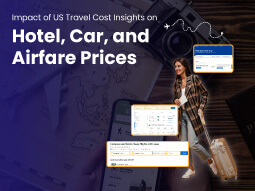How Web Scraping Helps in Extracting Government and Public Sector Data?

Along with the growth in technology, big data and analytics are undeniably no less crucial these days. It applies to business companies, healthcare, and the administration. Web scraping is the process of harvesting essential data from the internet reservoir; therefore, it can obtain this vital information. Changing public sector and government research science requires better data for decision-makers to make the right choices, and these are people like policymakers and analysts, among others. However, on digital platforms, a lot of information is generated, which needs to be clarified when trying to filter or sort it all out. Therefore, web scraping provides a means of collecting data more efficiently and making research more creative and rapidly performed.
What is Government and Public Data Scraping?
Data scraping, or web scraping, is using a digital tool to collect information from websites and online databases automatically. Dream of no more need to visit websites to copy all important data – let a robot do it. This tool collects data from websites like government rules, public reports, or price tags. People utilize data scraping for research purposes, such as examining legislation or analyzing market patterns. It is an excellent way to get information rapidly (all you need to understand various topics) and use it to understand any subject better.
Nevertheless, a handful of points are worth considering when performing web scraping government sites. It is essential to follow the rules and laws about using online information. For instance, certain websites may not allow scraping; thus, you should adhere to them by any means. Furthermore, we must handle personal data cautiously and avoid undesired behaviors as much as possible. So, while data scraping is an effective tool, it must be used safely and politely.
Scraping Data from Government Sources
Scraping government website data means using special tools or programs to collect information from official government websites, databases, or online portals. Government bodies, such as data storehouses, are especially information-supplier entities, such as laws, public records, budgets, and statistics. Without that data, data scientists and analysts, which are not customer-friendly for regular people, can be equipped with vital information, monitor the government, and check public policies and efficiency.
Scraping government websites involves retrieving data from data providers or sources such as government websites.
Summary
What Kind of Data Can You Get From Government Websites:
Laws and Rules: This includes the texts of laws, rules, and policies.
Public Records: Things like birth certificates, property ownership, and court case details.
Financial Data: Budgets, economic stats, and tax details.
People and Society: Census info, health numbers, and education stats.
Environment: Weather data, pollution info, and maps.
Public Opinion: Surveys, polls, and comments from the public.
From Public Organizations
Business Data: Details about registered businesses and professional licenses.
Regulatory Docs: Reports and documents that businesses have to submit.
Safety and Infrastructure: Crime rates, emergency services, and transportation details.
Types of Data Scraped from Government Websites
Remember, the kind of data you can find might differ depending on where you are or which part of the government you're looking at. When obtaining data from various sources, adhering to any restrictions or norms is critical.
Laws and Rules
Laws and Regulations: These are like the rulebooks that the government follows. They contain the actual texts of laws and rules that the government sets.
Policy Papers: These act as the government's master data. They're official documents outlining the government's intentions and strategies for addressing various issues.
Property Records: These records tell us about properties in an area, such as who owns them, how much they're worth, and how they're being used.
Court Records: This is information about legal cases, like who's involved, what the case is about, and when the court dates are.
Money Matters
Budgets and Spending: Those documents basically show us where the government plans to spend its money. Allocation of funds, detailing expenditures on sectors such as education, infrastructure, and healthcare while also disclosing the destinations of the funds.
Economic Stats: As for economic stats, they are a quick outline of how the economy is doing. They tell us if people find jobs easily and if prices are going up or down. It's a way to see if the economy is healthy or if some problems need fixing.
Taxes: Here, you can find information about how much tax people and businesses have to pay, what forms they need to fill out, and any rules about taxes.
People and Society
Census Data: This gives us information about the people living in a place, like how many people live there, their ages, and other demographics.
Health Stats: These tell us about people's health, such as whether there's a lot of flu or how many people have been vaccinated.
Education: This part tells us about schools, including how students are doing in their classes, how many students graduate, and what resources the schools have.
Climate Info: This is all about the weather and climate in an area, such as whether it's usually hot or cold or if it rains a lot
Environmental Assessments: These give us details about the environment, like how clean the air and water are and if there are any protected areas.
Maps and Geospatial Data: These are digital maps that show where things are located, such as parks, roads, or buildings.
Public Opinion
Surveys and Polls: These are questionnaires that ask people what they think about different things. They might ask who they voted for in an election or what they think about a new law. It is a way for people to share their opinions and for others to understand what's important to them.
Public Comments: This is feedback from people about government plans or projects. It's like when people write to say what they think about a new road or park.
Business Licenses: This tells us about businesses in an area, like what they do and if they have the proper licenses to operate.
Professional Licenses: These are licenses that people need to work in specific jobs, like doctors or lawyers.
Regulatory Info: This is paperwork that businesses or organizations have to fill out to show they're following the rules set by the government.
Crime Stats: This tells us about crime in an area, such as how many crimes are happening and what kind.
Emergency Services: This is information about services like fire departments or ambulances, like how quickly they respond to emergencies.
Transport Info: This gives us details about getting around, like traffic conditions or bus schedules.
Infrastructure: This is about public projects like building roads or schools, telling us what's being built and when it will be done.
Scraping Data from the Public Sector

Scraping data from the public sector is collecting information from government websites or sites that receive money from the government. This information can be helpful for researching, public sector data analytics, or ensuring that things are open and transparent for everyone. Businesses scrape public sector data to stay updated with the latest updates.
By scraping different types of data from the public sector, researchers, analysts, or even regular people can learn a lot, make better decisions, perform public sector data analytics, and monitor what the government and public organizations are doing.
Laws and Regulations
Texts of Laws, Regulations, and Policies: This is where you can find the actual words of laws made by the government. It also includes rules and plans for different areas like traffic, environment, or health.
Public Records
Vital Records: These are essential papers that tell us about significant events in people's lives, such as when they were born, married, passed away, or divorced.
Property Records: These data tell you about properties, such as who owns them, how much they're worth, and what they're used for.
Court Records: This is information about legal cases, court decisions, and when the next court dates are.
Financial Data
Budgets: These plans show how the government will spend money on different things.
Economic Indicators: These are data that tell us how well the economy is doing, such as whether people have jobs or if prices are going up.
Tax Information: This is about taxes, like how much people or businesses have to pay and how the government uses that money.
Demographic Data
Census Data: This is information from the national headcount of people, showing things like age, where people live, and family size.
Health Statistics: This is data about health issues, like outbreaks, vaccination rates, or hospitals.
Education Data: This tells us about schools, how well students are doing, and what resources are available.
Environmental Data
Climate Information: This is about the weather and climate, like temperatures or weather patterns.
Environmental Assessments: These are studies about how people affect the environment, pollution, and efforts to protect nature.
Geospatial Data: This is like digital maps showing geographical information, like boundaries or landmarks.
Public Opinion
Surveys and Polls: These are the results of asking people questions to determine their thoughts on different topics.
Public Comments: People's feedback or opinions on government plans or projects.
Public Organizations
Business Licenses: This is information about businesses, such as their name, address, type, and whether they have a license.
Professional Licenses: This is about licenses for jobs like doctors, lawyers, or engineers, showing if they're allowed to practice and if they've had any issues.
Regulatory Filings
Professional Licenses: This is about licenses for jobs like doctors, lawyers, or engineers, showing if they're allowed to practice and if they've had any issues.
Reports and Documents: These are papers or reports that businesses or people have to give to certain government agencies, like financial reports or environmental studies.
Crime Statistics: These data tell us about crime, such as the amount or types of crimes committed.
Emergency Services Data: This is information about services like fire or ambulance services, such as how quickly they respond to emergencies.
Transportation Information: This tells us about getting around, like traffic, roads, public transit, or significant construction projects.
Benefits of Web Scraping in the Government and Public Sector

Companies should be responsible enough to choose the data they believe brings greater value to a specific context at that time. There are various benefits of web scraping government sites and public sector data:
Transparency and Accountability
When we perform web scraping government sites, we can see what the government is doing more clearly. Government and public sector data analytics helps keep them accountable because people can see where money is being spent and what decisions are being made.
Informed Decision-Making
Businesses scrape government websites and public sector data to get access to large datasets that help researchers, policymakers, and businesses make better decisions. For example, they can determine whether a new policy is working or understand economic trends to plan for the future.
Research and Analysis
The modern approach to scrape public sector data and government website data can be utilized by professionals and scientists to learn more about health, education, and the environment. This allows us to learn more about these subjects and identify ways to enhance them.
Public Services and Innovation
With public sector data analytics and web scraping government sites, developers can create new apps or sources of information that make life easier for people. For example, maps showing public transportation routes or directories for community services.
Economic Development
Businesses can use government economic data to make plans by ensuring success of their business. This can attract more investment because investors can see where there are good opportunities.
Public Engagement and Participation
When businesses extract public sector data and government website data, People can join conversations about community matters when they can easily understand government information. This makes democracy stronger by letting more people share their thoughts and shape what happens in their area.
Conclusion
Web scraping is increasingly seen as a valuable tool for extracting data, particularly as governments and public sectors adapt to the digital era. One of the most critical factors in current governance is no longer the line about open data projects with performing web scraping government sites.
Collaborating with enterprises data scraping like iweb Scraping is the way toward a future course of events where data-driven governance is the leading force. Thus, the public sector is more informed, transparent, and accountable. Scraping data from the internet can be viewed as a powerful tool for governmental institutions that enables them to collect a massive amount of essential information in a relatively short time. To put it categorically, web scraping is a valuable tool that the government should embrace as its friend. Companies that collect data, like iWeb Scraping services, are at the forefront of innovation and provide improved and new methods of data collecting that benefit all parties. Nevertheless, some challenges can come up often, but this web scraping company remains relevant to the government and public sector institutions during their data scraping process. The process of scraping public sector data and government websites is gathered with diligence and ethical consideration to help policymakers make more informed decisions and improve their services.




